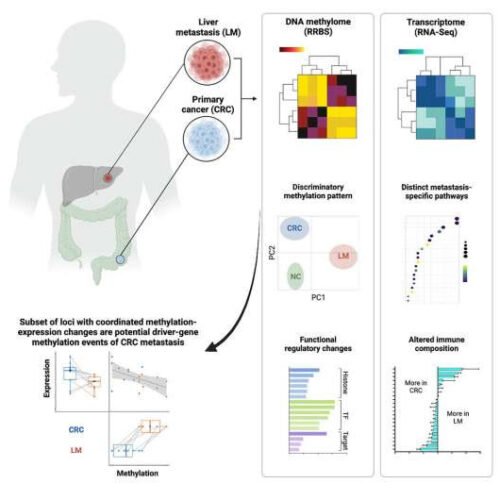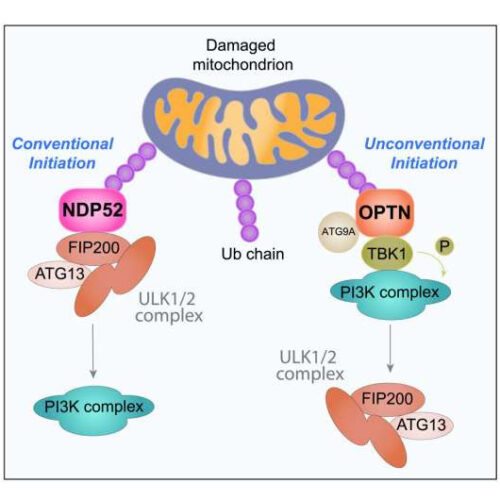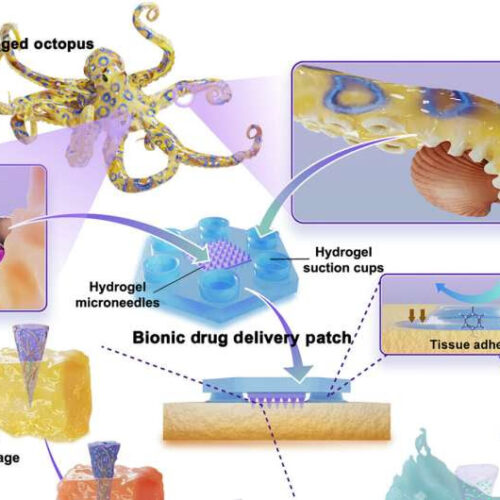by University of Otago Graphical abstract. Credit: iScience (2023). DOI: 10.1016/j.isci.2023.106986 In a significant development in the fight against fatal cancers, University of Otago researchers have pinpointed a key feature that leads to the aggressive spread of colon cancer. Led by Associate Professor Aniruddha Chatterjee and Drs Euan Rodger and Rachel Purcell, researchers discovered abnormalities in the DNA instruction code that lead...
‘Striking’ Benefit of Lipid Lowering in Primary Prevention
Sue Hughes, June 24, 2023 Dr Steve Nissen SAN DIEGO – A new analysis of a large-scale trial of a novel lipid-lowering agent has shown a particularly large reduction in cardiovascular events in the primary prevention population enrolled in the study, two thirds of whom also had type 2 diabetes, leading to calls for more attention to...
Patient with antibiotic-resistant lung infection saved with bacteriophages
by University of Geneva Patient treatment, follow-up and sample collection. a Antibiotic treatments are indicated by green horizontal lines and phage therapies by blue vertical lines. P. aeruginosa isolates selected for genotypic and phenotypic analysis are shown above the black-dotted vertical lines. Numbering of isolates and events is in reference to the day of the first...
Mitochondrial research rewrites understanding of Parkinson’s disease pathway
by Walter and Eliza Hall Institute of Medical Research Credit: Molecular Cell (2023). DOI: 10.1016/j.molcel.2023.04.021 While mitochondria play a crucial role in producing the energy our cells need to carry out their various functions, when damaged, they can have profound effects on cellular function and contribute to the development of various diseases. Broken-down mitochondria are usually removed and recycled through a...
Antidepressant Medications Might Help Block COVID-19
Jay Croft June 23, 2023 Can common anti-depressants prevent COVID-19 infection? That’s the suggestion of research in BMC Medicine, based on infection trends among more than 5,600 mental health care patients in the United Kingdom from April to December 2020. The report says that selective serotonin reuptake inhibitors (SSRIs) were particularly effective in blocking COVID-19 transmission....
‘Aging’ immune cell levels could predict how well we respond to vaccines
by University of Cambridge Vaccination. Credit: Ed Us Cambridge scientists have identified a signature in the blood that could help predict how well an individual will respond to vaccines. The discovery, published today in Nature Communications, may explain why, even among vulnerable patient groups, some individuals have better responses to vaccines than others. During the COVID-19 pandemic,...
Novel drug could treat long COVID and prevent re-infection
by QIMR Berghofer Graphical overview of epigenetic reprograming in hamster bronchiolar epithelium and human CD14+ monocytes. Credit: Nature Communications (2023). DOI: 10.1038/s41467-023-39341-4 A new drug developed by QIMR Berghofer could transform the treatment of COVID-19 by potentially protecting against infection by any SARS-CoV-2 variant and reversing the persistent inflammation that is a major driver of debilitating long COVID....
Is a Drug to Treat Cannabis Addiction Finally Within Reach?
Marine Cygler June 23, 2023 BORDEAUX, France — Could AEF0117, a drug that has a novel mechanism of action in the brain, be the drug to fight cannabis addiction? Results from a phase 2a clinical trial that examined the efficacy of AEF0117 in patients with cannabis use disorder have created quite a stir. The study was published in Nature...
A microneedle patch for surface adhesion and injection drug delivery inspired by the blue-ringed octopus
by Bob Yirka, Medical Xpress Blue-ringed octopus-inspired drug delivery patch. (A) Hydrogel microneedle (MN) suction cup drug delivery platform was developed by imitating the blue-ringed octopus’ predation process. This material achieves wet tissue surface adhesion and self-controlled multistage drug release. (B) Tissue adhesion of the hydrogel suction cups comes from negative pressure fixation and the...
SCIENTISTS GAVE A NAZI MDMA AND HE RENOUNCED RACISM
NEUROSCIENCE/BRAIN SCIENCE A white supremacist took the party drug MDMA as part of a controlled science experiment, the BBC reports, and it proved so life-changing that he dropped his racist, bigoted beliefs. “This is stuff you can’t really put into words, but it was so profound,” the now former white supremacist identified as Brendan told the broadcaster. “I...






